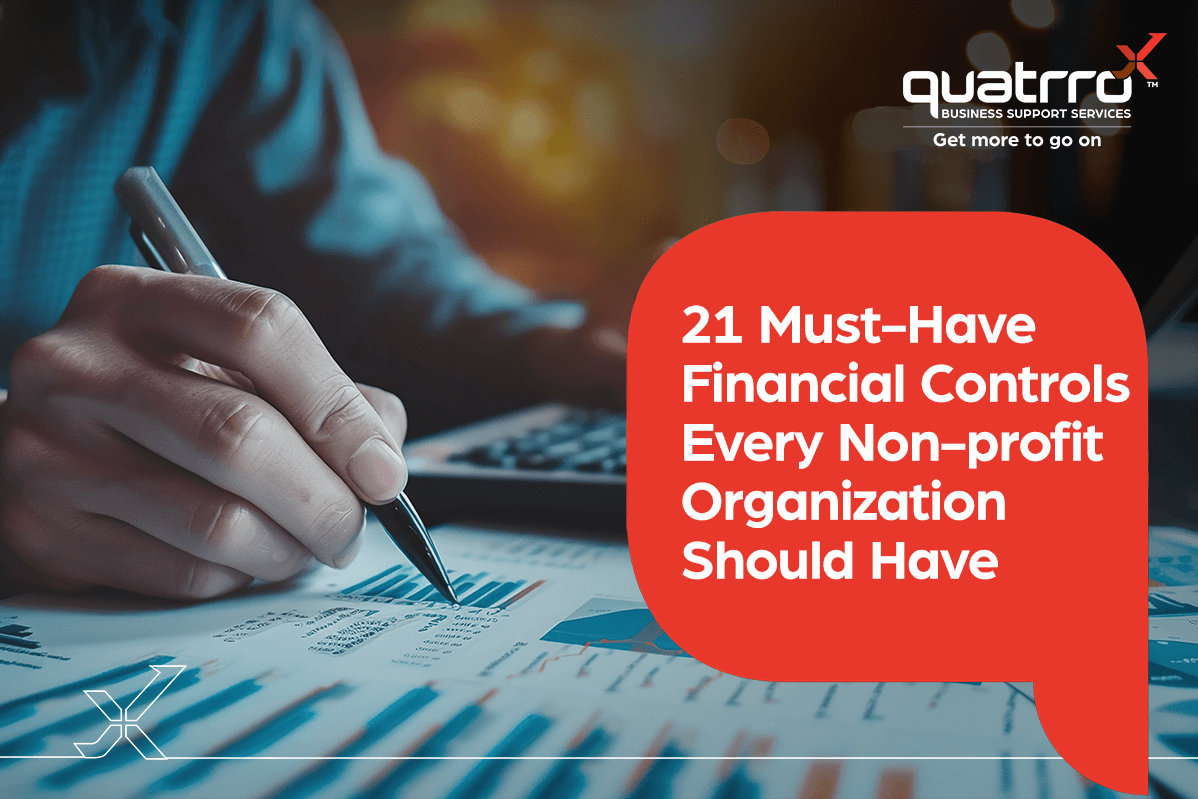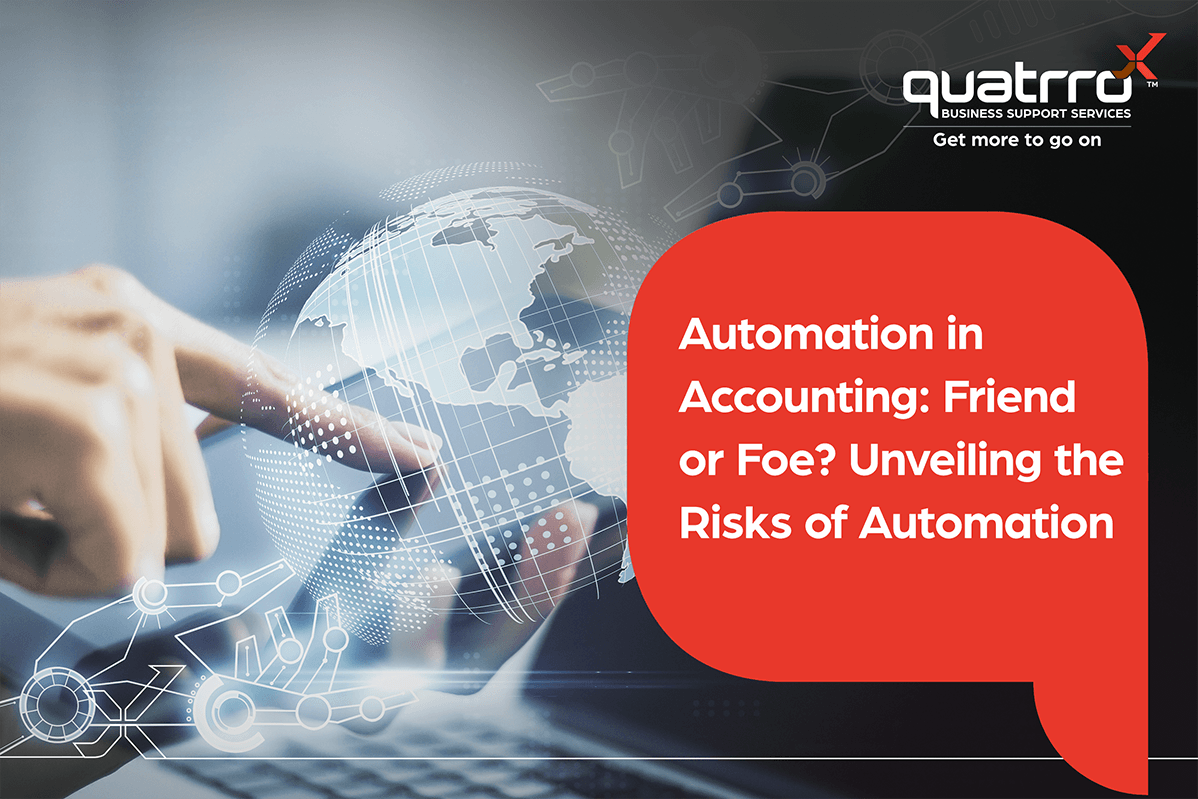Blog Details
How Tech and Data Analytics are Serving Up Success in the Restaurant Industry’s Economic Crunch
April 2, 2024

While the restaurant and food service industries are expected to grow in 2024, restaurant operators are also encountering increased challenges. Costs for labor, rent, and ingredients are rising. U.S. consumer disposable income is decreasing, which may result in a reluctance to eat out or order food for delivery.
As margins get tighter, restaurants must turn to technology to improve revenues and cut costs. By modernizing back-office tasks such as accounting and inventory management, restaurant operators can optimize operations, improve efficiency, and make it easier to focus on the customer experience. Digital tools and data analytics enable a comprehensive view of the restaurant’s performance, highlighting opportunities for increasing sales and areas where unnecessary costs can be mitigated.
Modern Restaurant Accounting
Modern restaurants are increasingly turning to advanced accounting software to streamline their financial operations. These digital tools are equipped with features designed to optimize the financial management process, including real-time financial reporting, budget management, and automated AP processing. Real-time financial reporting allows restaurant operators to access up-to-the-minute financial data, enabling them to monitor their financial performance closely and make timely adjustments to their operations. Budget management features provide the tools to plan and control financial spending effectively, ensuring that restaurants can maintain profitability even in tight market conditions. Automated AP processing simplifies the paymentprocess, reducing manual errors and freeing up staff time for more strategic tasks.
Integration and Analytics
The true power of digital accounting tools lies in their integration with other business systems, particularly point of sale (POS) systems. Integrating sales data from POS systems with accounting software allows restaurants to gain a comprehensive view of their financial health without having to take the time to manually merge data. This integration enables seamless data flow between sales and accounting, providing valuable insights into revenue streams, cost structures, and profitability margins.
Through analytics, restaurant operators can delve into their financial data, uncovering patterns and trends that inform better decision-making. For instance, analyzing sales data can help identify which menu items are most profitable, guiding menu and inventory planning, as well as pricing strategies. Similarly, cost analysis can reveal areas where expenses can be reduced without compromising on quality or customer experience.
Why Restaurants Are Investing In IT
The integration of digital systems across various operational areas, from online ordering and reservations to inventory management and customer relationship management, creates an interconnected digital ecosystem that streamlines restaurant operations. This integration facilitates the seamless flow of information across different platforms, eliminating data silos and enhancing operational efficiency. For instance, integrating the POS system with inventory management software allows for real-time tracking of stock levels, automatically updating inventory as orders are placed.
Online ordering and reservation systems integrated with the restaurant’s website and mobile app enhance the customer experience by offering convenience and efficiency. These systems also provide valuable data on customer preferences and behavior, which can be analyzed to tailor marketing strategies, personalize offers, and improve menu offerings. Additionally, integrating CRM systems enables restaurants to manage customer interactions effectively, fostering loyalty and encouraging repeat business through targeted communication and rewards programs.
The insights gained from the integrated systems allow restaurant operators to make strategic adjustments to their operations, menu, and marketing efforts, ultimately driving growth and profitability.
Cloud-Based Solutions
Cloud computing allows for the storage and management of data over the internet, providing restaurants with access to their information anytime, anywhere. This is particularly beneficial for chains or businesses with multiple locations. The scalability of cloud-based solutions means that restaurants can easily adjust their storage needs based on seasonality or business growth, without significant upfront investments in physical infrastructure.
Furthermore, cloud computing ensures business continuity by safeguarding against data loss due to hardware failures, natural disasters, or other unexpected challenges. With data backed up in the cloud, restaurants can quickly recover their operational capabilities following an incident, minimizing downtime and loss of revenue.
Data Security
Data breaches are increasingly common, which makes prioritizing cybersecurity essential – especially if your data is housed in the cloud. Protecting sensitive customer and business data is important for maintaining trust and keeping the business safe. Cybersecurity measures such as encryption, multi-factor authentication, and regular security audits are vital in defending against cyber threats.
It’s also important to train staff on the importance of data security and best practices to create a culture of cybersecurity awareness within the restaurant. Employees are often yourfirst line of defense against cyber threats — restaurant leaders should equip their employees with the knowledge and tools to recognize and respond to potential security risks.
By prioritizing data security, restaurants not only protect their customers and operations from cyber threats but also comply with regulatory requirements, avoiding potential legal and financial repercussions.
ERP Systems for Restaurants
An Enterprise Resource Planning (ERP) system is a comprehensive software platform designed to manage and integrate the core processes of a business into a single unified system. ERP systems streamline operations across various departments, including accounting, human resources, procurement, supply chain management, and customer relationship management, among others.
Modern ERP systems are often cloud-based, offering enhanced accessibility, security, and mobility. They provide real-time visibility into operations, offering detailed analytics and reporting features that help businesses forecast trends, manage risks, and plan strategically. Implementing the right ERP system for your organization can lead to significant improvements in productivity, efficiency, and profitability.
A good ERP system offers scalability and comprehensive financial management capabilities, catering to the needs of growing restaurant organizations. Scalability ensures that the system can adapt to the restaurant's changing needs, supporting expansion and diversification without requiring a complete overhaul of the financial management infrastructure. Comprehensive financial management means that the ERP system provides a unified platform for managing all aspects of the restaurant's finances, from accounting and budgeting to inventory management and procurement.
Finding the Right Partner Makes a Difference
Recognizing the potential barriers to adopting these advanced digital tools—such as cost concerns, technical complexity, and resource limitations—many restaurants are exploring partnership models with outsourced service providers. These partnerships allow restaurants to access comprehensive technology expertise and solutions for back-office support without the need for direct investment in software platforms. These service providers offer a range of services, from accounting software and ERP system implementation to ongoing support and maintenance.
Partnering with the right service provider offers several advantages. It allows restaurants to leverage the expertise of specialists in digital accounting and financial management, ensuring that the implementation process is smooth and the systems are optimized for the restaurant's specific needs. Furthermore, it provides access to the latest technology innovations without the need for significant upfront investment, reducing financial risk. Lastly, it frees up restaurant staff to focus on core operational tasks, confident in the knowledge that their financial management processes are being handled by experts.
With a suite of services designed to modernize your finances, optimize your IT infrastructure, and secure your data, Quatrro Business Support Services (QBSS) is your ideal partner in achieving operational excellence. We invite restaurant operators to explore how we can elevate their business to new heights. Reach out today and discover the full potential of your restaurant with QBSS at your side.








